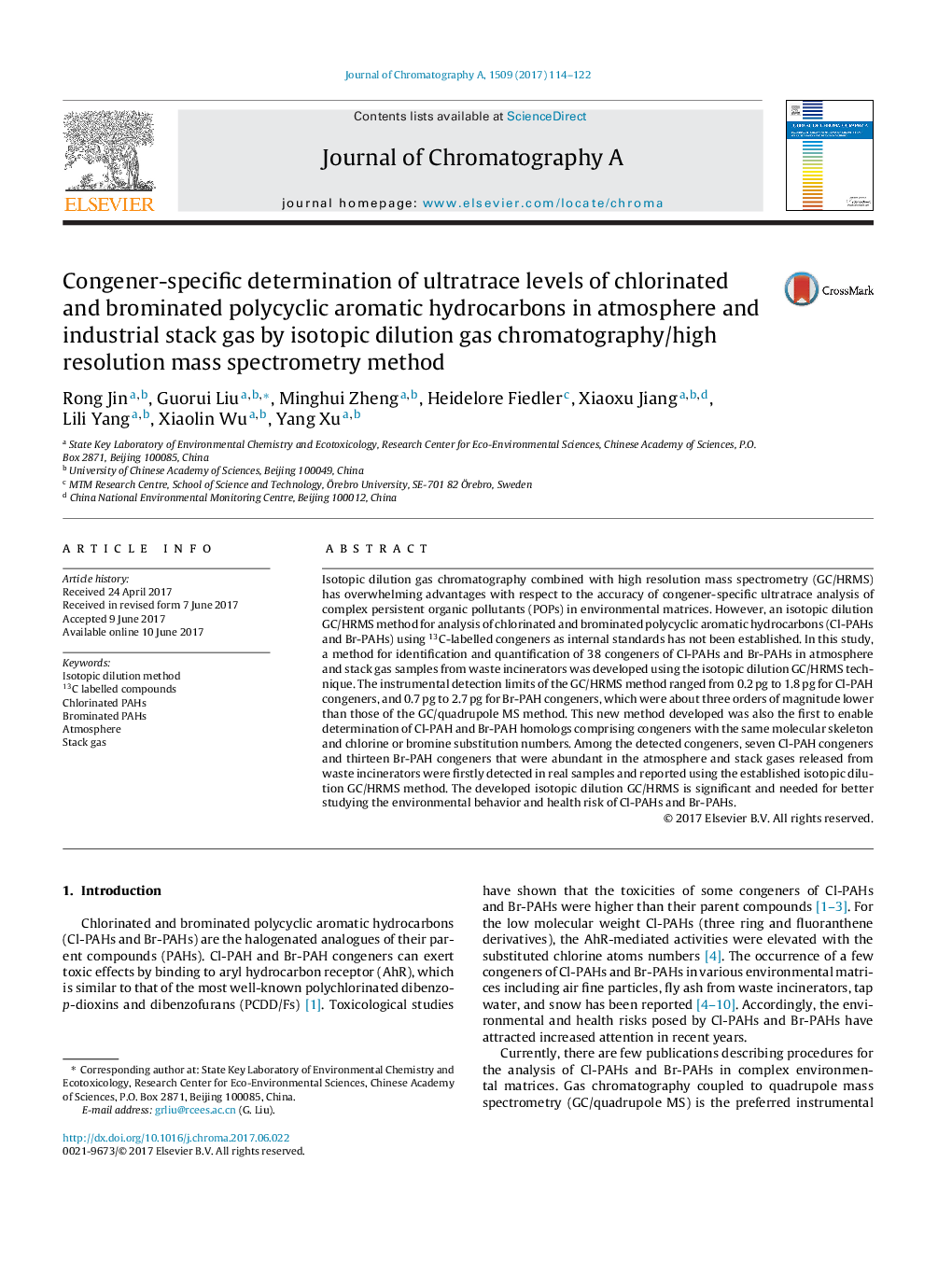| Article ID | Journal | Published Year | Pages | File Type |
|---|---|---|---|---|
| 5135025 | Journal of Chromatography A | 2017 | 9 Pages |
â¢Isotopic dilution GC/HRMS method for analysis of Cl-/Br-PAHs was developed.â¢LOD of the developed method was three orders of magnitude lower than GC/MS method.â¢The method was the first to enable determination of homologs of Cl-/BrPAHs.â¢Twenty Cl-/BrPAH congeners were firstly detected for incinerators by the method.
Isotopic dilution gas chromatography combined with high resolution mass spectrometry (GC/HRMS) has overwhelming advantages with respect to the accuracy of congener-specific ultratrace analysis of complex persistent organic pollutants (POPs) in environmental matrices. However, an isotopic dilution GC/HRMS method for analysis of chlorinated and brominated polycyclic aromatic hydrocarbons (Cl-PAHs and Br-PAHs) using 13C-labelled congeners as internal standards has not been established. In this study, a method for identification and quantification of 38 congeners of Cl-PAHs and Br-PAHs in atmosphere and stack gas samples from waste incinerators was developed using the isotopic dilution GC/HRMS technique. The instrumental detection limits of the GC/HRMS method ranged from 0.2Â pg to 1.8Â pg for Cl-PAH congeners, and 0.7Â pg to 2.7Â pg for Br-PAH congeners, which were about three orders of magnitude lower than those of the GC/quadrupole MS method. This new method developed was also the first to enable determination of Cl-PAH and Br-PAH homologs comprising congeners with the same molecular skeleton and chlorine or bromine substitution numbers. Among the detected congeners, seven Cl-PAH congeners and thirteen Br-PAH congeners that were abundant in the atmosphere and stack gases released from waste incinerators were firstly detected in real samples and reported using the established isotopic dilution GC/HRMS method. The developed isotopic dilution GC/HRMS is significant and needed for better studying the environmental behavior and health risk of Cl-PAHs and Br-PAHs.
